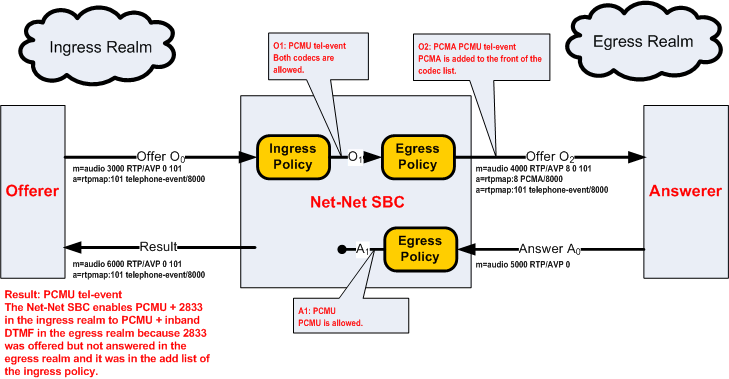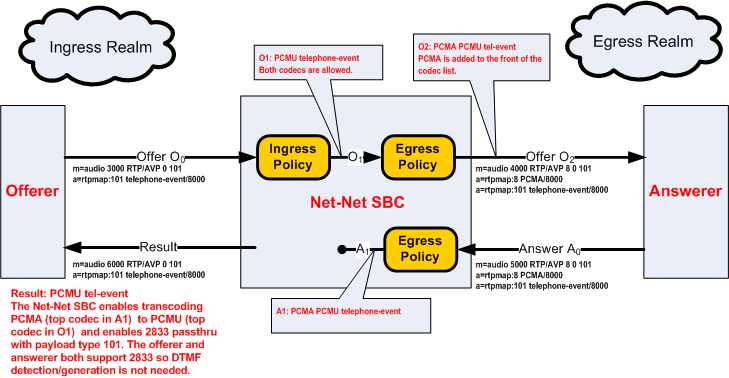RFC 2833 Scenario 2
The following ingress and egress policies are used for RFC2833 scenario 2.
| Ingress Policy | Egress Policy | ||
|---|---|---|---|
| allow-codecs | * | allow-codecs | * |
| add-codecs-on-egress | telephone-event | add-codecs-on-egress | PCMU |
| order-codecs | order-codecs | ||
| force-ptime | disabled | force-ptime | disabled |
| packetization-time | packetization-time | ||
| dtmf-in-audio | preferred | dtmf-in-audio | preferred |





